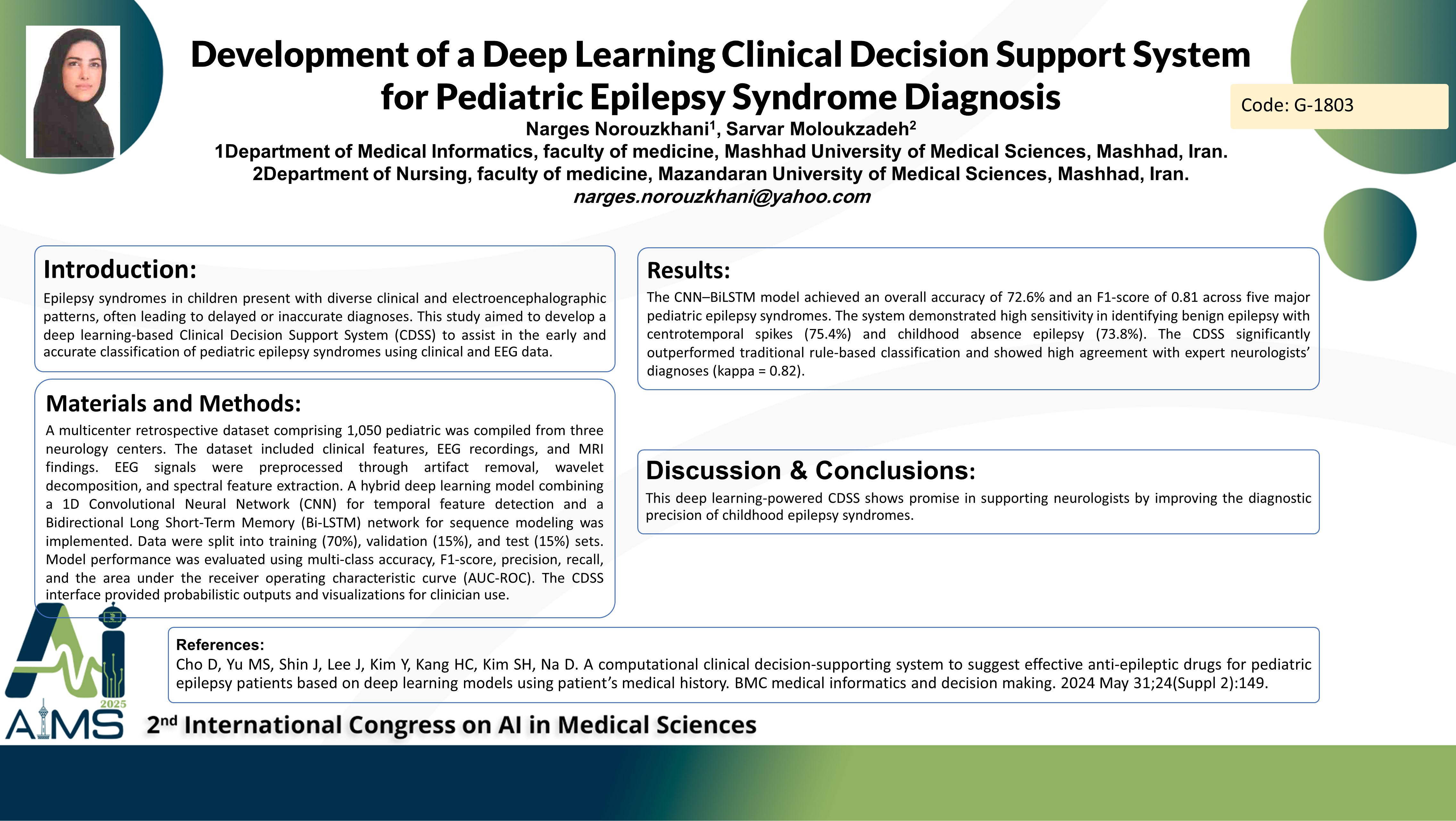Development of a Deep Learning Clinical Decision Support System for Pediatric Epilepsy Syndrome Diagnosis
Code: G-1803
Authors: Narges Norouzkhani * ℗, Moloukzadeh Sarvar
Schedule: Not Scheduled!
Tag: Intelligent Virtual Assistant
Download: Download Poster
Abstract:
Abstract
Background and Objective: Epilepsy syndromes in children present with diverse clinical and electroencephalographic patterns, often leading to delayed or inaccurate diagnoses. This study aimed to develop a deep learning-based Clinical Decision Support System (CDSS) to assist in the early and accurate classification of pediatric epilepsy syndromes using clinical and EEG data. Materials and Methods: A multicenter retrospective dataset comprising 1,050 pediatric cases aged 1–16 years was compiled from three neurology centers. The dataset included clinical features (age of onset, seizure type, developmental history), EEG recordings, and MRI findings. EEG signals were preprocessed through artifact removal, wavelet decomposition, and spectral feature extraction. A hybrid deep learning model combining a 1D Convolutional Neural Network (CNN) for temporal feature detection and a Bidirectional Long Short-Term Memory (Bi-LSTM) network for sequence modeling was implemented. Data were split into training (70%), validation (15%), and test (15%) sets. Model performance was evaluated using multi-class accuracy, F1-score, precision, recall, and the area under the receiver operating characteristic curve (AUC-ROC). The CDSS interface provided probabilistic outputs and visualizations for clinician use. Results: The CNN–BiLSTM model achieved an overall accuracy of 72.6% and an F1-score of 0.81 across five major pediatric epilepsy syndromes. The system demonstrated high sensitivity in identifying benign epilepsy with centrotemporal spikes (75.4%) and childhood absence epilepsy (73.8%). The CDSS significantly outperformed traditional rule-based classification and showed high agreement with expert neurologists’ diagnoses (kappa = 0.82). Conclusion: This deep learning-powered CDSS shows promise in supporting neurologists by improving the diagnostic precision of childhood epilepsy syndromes.
Keywords
Epilepsy, Deep Learning, Clinical Decision Support
